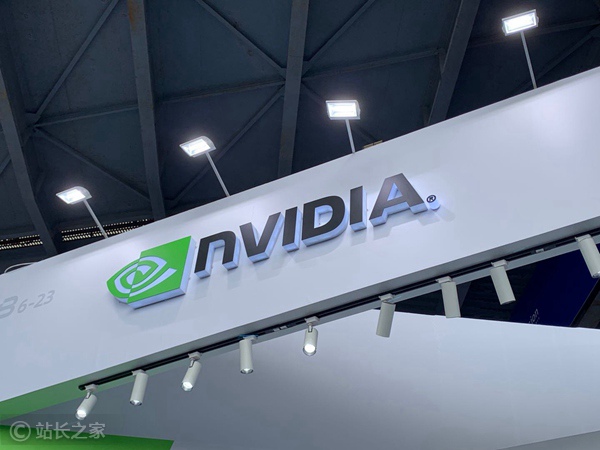The American artificial intelligence giant NVIDIA is actively deploying the Vietnamese technology market. Its series of strategic initiatives demonstrate its optimism about Vietnam's economic and technological potential, as well as its recognition of the Vietnamese government's active development policies. Recently, NVIDIA has cooperated with the Vietnamese government and a number of local technology companies to establish advanced AI centers, cultivate AI talents, and promote the rapid development of Vietnam's AI industry. This not only provides strong impetus for Vietnam's technological transformation and upgrading, but also indicates that Vietnam will occupy an increasingly important position in global technological competition.
Against the background of the technology boom in East Asia, the American artificial intelligence computing giant NVIDIA has recently set its sights on Vietnam. This strategic move not only reflects NVIDIA's recognition of the Vietnamese government's active development policies, but also highlights the country's huge potential in the economic and technological fields.
On December 5, NVIDIA signed a memorandum of understanding with Vietnam’s Ministry of Planning and Investment, planning to establish two cutting-edge AI centers in Vietnam: the Vietnam Research and Development Center (VRDC), the world’s third largest AI research center, and an AI data center. This cooperation will enhance technological innovation and enhance Vietnam’s technological infrastructure and talent pool.

This is not the first time NVIDIA has cooperated with local companies. Recently, the company acquired VinBrain, a subsidiary of Vingroup that focuses on AI medical solutions. Steven Truong, the founder of VinBrain, once worked at Microsoft. The AI-driven diagnostic tool DrAid they developed has been widely used in major hospitals in Vietnam and internationally, and has attracted much attention for participating in NVIDIA's Inception program. In addition, NVIDIA has also reached a strategic alliance with IT giant FPT Corporation and plans to build a US$200 million "one-stop AI factory" in Hanoi. The project will include the field of education for 30,000 college and high school students who want to work in AI. Provides curriculum development, training and laboratory facilities. The first FPT AI factory is expected to break ground in November 2024 and is expected to become profitable in 2025.
At the same time, NVIDIA has established a partnership with GreenNode, an AI GPU provider owned by VNG Corporation. GreenNode has been providing AI and software services integrating NVIDIA technology since April, and its data center in the Tan Thuan Export Processing Zone is one of the first facilities equipped with NVIDIA graphics processing units. These measures mark an important step taken by Vietnam in technological transformation and future talent cultivation, and it has gradually become a hot spot for high-tech foreign investment.
Vietnam is rapidly emerging as an important player in Southeast Asia’s AI field. According to Statista, the country's AI market is expected to reach US$753.4 million by 2024, with an average annual growth rate of 28.36% between 2024 and 2030. This growth rate is comparable to the 28.53% in Southeast Asia, demonstrating Vietnam’s ability to keep pace with the times in global technological changes.
NVIDIA's investment in Southeast Asia is undoubtedly an important catalyst for Vietnam's technological development. Vietnam is gradually moving from low-end manufacturing to global innovation networks, which not only enhances its position in the global supply chain, but also creates unique competitive advantages for companies operating in Vietnam. As the United States tightens restrictions on Chinese technology companies, Southeast Asian markets are expected to attract large amounts of foreign investment, especially in the technology sector, making countries such as Vietnam, Malaysia, Singapore and Indonesia increasingly competitive in technology manufacturing, data centers and emerging AI hubs. Intense hair.
According to research by the British Oxford think tank, Vietnam's ranking in AI readiness has improved significantly and is currently ranked 39th among 139 countries, an increase of 19 places from last year. In Southeast Asia, Vietnam stands out in the field of AI, with more than 5,000 engineers, 7,000 AI experts and about 500 related start-ups.
Vietnam’s potential for technological growth mainly stems from several factors. First of all, a young and dynamic workforce is key. The country's illiteracy rate is only 3.4%, and students actively choose to study STEM (Science, Technology, Engineering and Mathematics)-related courses. In June 2023, Vietnam's average monthly salary was US$331, far lower than China's 4.2 times and the United States' 14.5 times. Meanwhile, Vietnam's labor productivity has doubled over the past decade, from US$4.8 per hour in 2014 to US$10.3 per hour in 2023.
Secondly, the rise of local startups and technology unicorns in Vietnam has also injected impetus into technological development. The country ranks third in Southeast Asia in terms of investment deals and total investment volume, and is home to more than 3,000 innovative startups, with three companies valued at more than $1 billion and 11 valued at more than $100 million. In recent years, many domestic technology unicorns and start-ups have performed well in the field of AI.
All in all, NVIDIA's investment in Vietnam is a win-win situation. It not only accelerates the development of Vietnam's AI industry, but also opens up new markets for NVIDIA itself. In the future, Vietnam’s vigorous development in the field of AI is worth looking forward to.